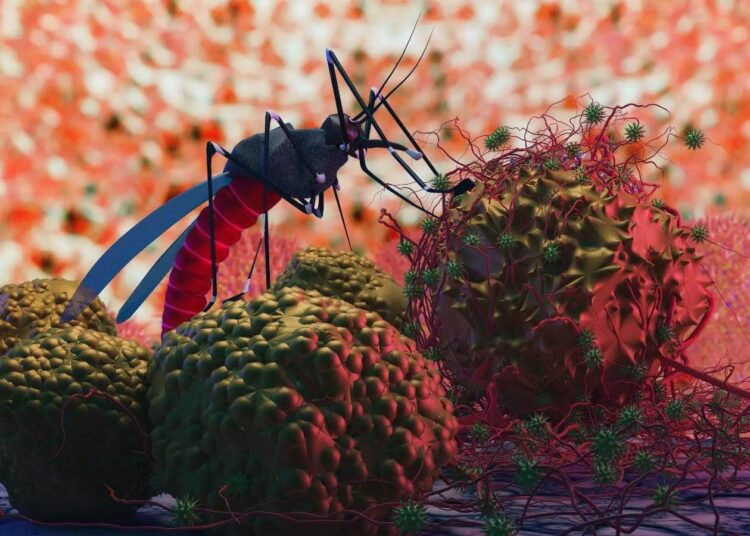Today, on World Malaria Day, the world has the opportunity to reflect on the progress made towards defeating one of the deadliest diseases of our time.
According to the 2021 World Malaria Report from the World Health Organisation(WHO), Nigeria contributes 27 per cent to the global malaria burden (one out of every four persons having malaria) and 32 per cent to malaria deaths globally (about one out of every three deaths).
In the considered opinion of this newspaper, world malaria day, as an event, provides an opportunity to assess the strides made in the fight against malaria and to evaluate the country’s commitment to ending this scourge.
In the last two decades, Nigeria has been battling malaria with varying degrees of success. Despite the government’s commitment to eradicating the disease, it remains a leading cause of death in the country.
It is instructive to note that the disease is responsible for about 11 per cent of maternal mortality, 30 per cent of childhood mortality, and 60 per cent of outpatient visits to healthcare facilities.
Regrettably, in our view, while many countries have eradicated malaria, it remains a scourge in Africa and Nigeria especially and the reasons are not far to seek.
For instance, globally, 40 countries and territories have been granted a malaria-free certification from WHO – including, most recently, El Salvador (2021), Algeria (2019), Argentina (2019), Paraguay (2018), and Uzbekistan (2018).
Also, China is the first country in the WHO Western Pacific Region to be awarded a malaria-free certification in 2021 in more than three decades. Other countries in the region that have achieved this status include Australia (1981), Singapore (1982), and Brunei Darussalam (1987).
Malaria was eradicated in Europe by the combination of insecticide spraying, drug therapy, and environmental engineering.
However, in recent years, Nigeria has made significant strides in the fight against malaria. The 2021 Nigeria Malaria Indicator Survey Report has shown that the prevalence of the disease in the country has decreased from 23 per cent in 2018 to 22 per cent in 2021.
The NMIS report also showed that malaria prevalence is highest among children aged 48 to 59 months and the prevalence is highest in the northwest at 51.6 per cent.
This progress is possible thanks to efforts by the government, non-governmental organizations, and other stakeholders in implementing effective malaria control strategies.
On this World Malaria Day, we must commend the Nigerian government for its efforts in the fight against malaria. The government’s commitment to malaria prevention and treatment has been demonstrated by its approval of a new malaria vaccine from Oxford University. This makes Nigeria the second country in the world after Ghana to approve the vaccine.
This new vaccine, called R21/Matrix-M, was found to be highly effective in clinical trials and could help reduce the number of malaria cases in Nigeria. The vaccine has shown a 77 per cent efficacy rate against malaria in early trials, and it is hoped that it will be a game-changer in the fight against the disease.
Indeed, there should be a serious enlightenment campaign for people to take the malaria vaccine .We recall the serious campaign by some religious and political leaders against taking the COVID-19 vaccine. It should not be allowed to replicate in the case of this malaria vaccine.
The approval of this vaccine is a significant achievement for Nigeria, as it shows the government’s commitment to finding new and innovative solutions to tackle malaria. It also highlights the country’s leadership in the fight against the disease.
However, we must not forget that there is still much work to be done in the fight against malaria. Despite the progress made, malaria remains a significant health challenge in Nigeria, and it will take sustained efforts to eliminate the disease.
The government must continue to prioritize malaria prevention and treatment, including increasing access to insecticide-treated nets, providing effective diagnosis and treatment, and improving surveillance and data collection.
These measures are critical in achieving Nigeria’s goal of eliminating malaria by 2025.
Consequently, on this World Malaria Day, we celebrate the progress made in the fight against the disease in Nigeria. We commend the government’s commitment to finding new solutions to tackle the disease and the approval of the new malaria vaccine from Oxford University.
However, we must not rest on our laurels. We must continue to work together to eliminate malaria once and for all.





